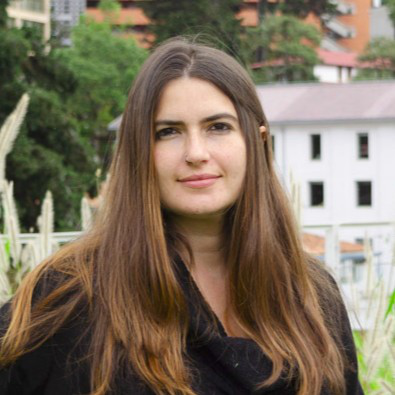 Maryam Chaib De Mares
Maryam Chaib De Mares
National University of Colombia
Colombia
Maryam Chaib De Mares is an assistant professor at the National University of Colombia. She studies the evolutionary and molecular basis of symbiotic relationships between animal hosts and microorganisms. She is also interested in understanding how ecological conditions modify the dynamics of these interspecific interactions. Maryam holds a Master's degree in Ecology and Evolutionary Biology from the University of Montpellier 2 in France and the University of Groningen in the Netherlands. At the latter university, she advanced her doctoral training in Microbial Ecology and Bioinformatics.
As a postdoctoral researcher in the Computational Biology and Microbial Ecology research group at the Universidad de los Andes, she taught undergraduate and masters classes in Genomics, Microbial Ecology and Bioinformatics and started working on the integration of sequence analysis with mathematical modeling in artificial microbial consortia from the human gut. Currently, Maryam leads the Theoretical and Evolutionary Molecular Biology Research Group at Universidad Nacional de Colombia. She is combining interdisciplinary approaches that integrate computation and wet-lab experiments to design and understand how gene circuits from communities of microorganisms have the ability to modulate animal host physiology.
Maryam also is a consultant in statistics and data analysis for the private sector. In addition, since her doctoral studies she has been trained in research data management, leading the adoption of reproducibility practices in computational biology. Beyond biology research, she has participated in open data initiatives to bring these skills to all interested citizens.
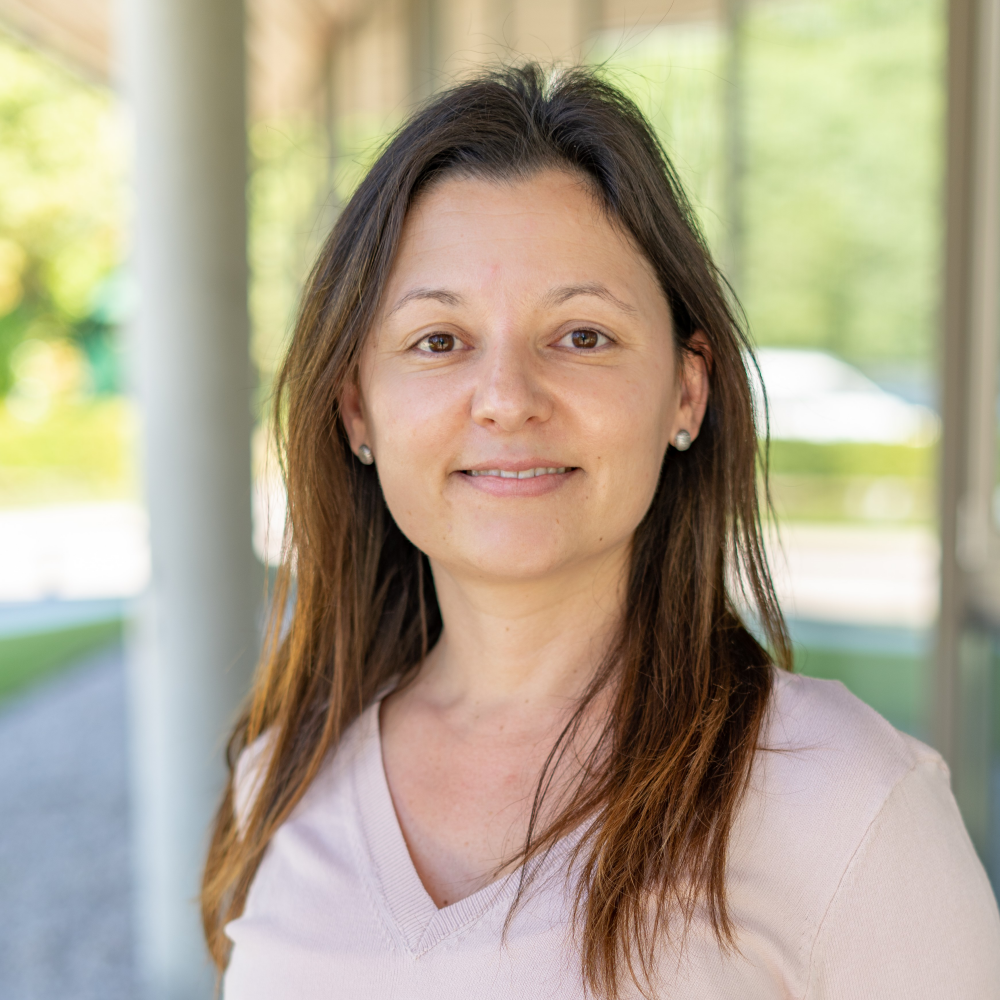 Valeria Faggioli
Valeria Faggioli
Instituto Nacional de Tecnología Agropecuaria
Argentina
Valeria Faggioli is a Researcher at the Instituto Nacional de Tecnología Agropecuaria (INTA), Argentina, in the Department of Soil Science and Crop Production (Marcos Juarez, Cordoba Province). She obtained her BSc in Agronomy, MSc in Soil Fertility, and PhD in Natural Science. During her post-doctoral studies, she performed training in bioinformatics at the European Bioinformatics Institute in Hinxton, UK (EMBL). The goal of her current investigations is to elucidate the impact of agricultural practices in microbial biodiversity studying long-term experiments.
Preservation of local biodiversity is a key factor in sustainable production. Agricultural soils can harbour diverse communities of microorganisms providing key ecosystem services such as nutrient cycling, chemistry and structure of soil, and plant productivity. To carry out sustainable agriculture, the understanding of the composition of microbial communities as well as changes induced by human practices demands the generation of experimental evidence.
As a member of CABANAnet project, the aim of her project is to investigate the impact of long-term anthropogenic practices on soil bacterial and fungal communities using high throughput sequencing techniques in emblematic agroecosystems of Argentina, Colombia, Costa Rica and Peru. This study pursues a complete taxonomic classification of the existing taxa and will represent an unprecedented dataset from Latin America.
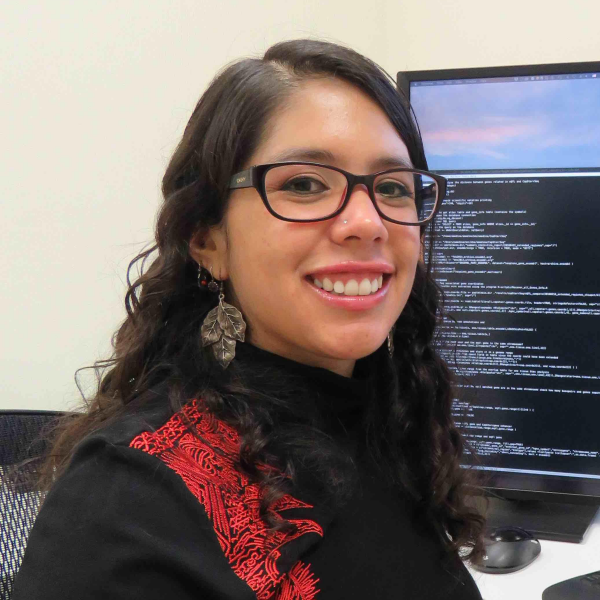 Alejandra Medina Rivera
Alejandra Medina Rivera
Laboratorio Internacional de Investigación sobre el Genoma Humano
Universidad Nacional Autónoma de México, Campus Juriquilla
Mexico
Alejandra obtained her Ph.D. in 2012 from the Biomedical Sciences Program at the National University of Mexico (UNAM), with a project developed under a cotutorship between Dr. Collado, at UNAM, and Dr. van Helden at the Université libre de Bruxelles. Since her Ph.D., she has been focused on developing bioinformatic tools, and strategies to study gene regulatory mechanisms, most of the developed tools are now part of the Regulatory Sequence and Analysis Tools suite (RSAT, http://rsat.eu/), where she still collaborates as a developer. Currently, using computational approaches, her research will incorporate functional genomics data into Genome Wide Association Studies (GWAS), aiming to identify variants that lead to misregulation of gene expression.
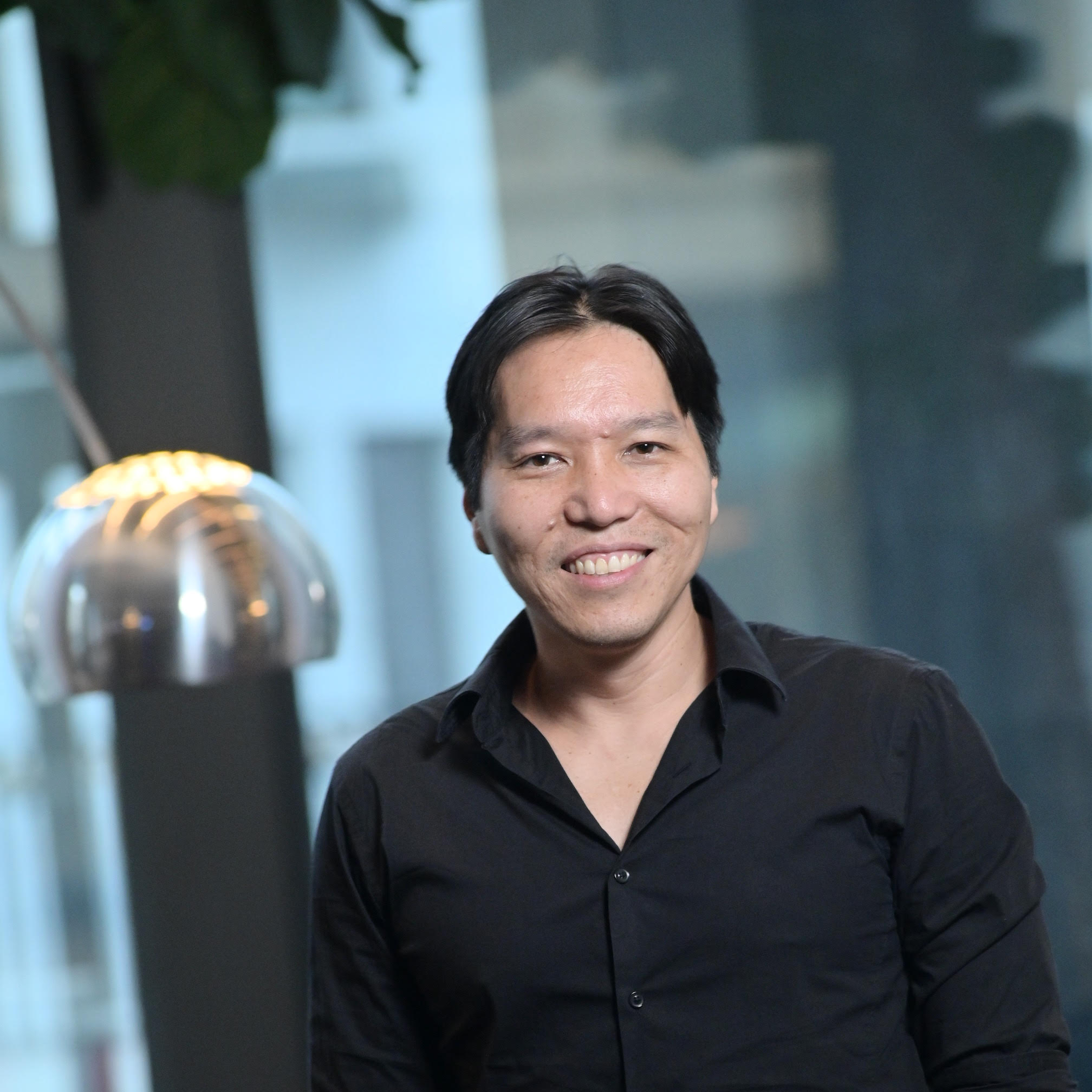 Helder Nakaya, Ph.D.
Helder Nakaya, Ph.D.
Associate Professor
School of Pharmaceutical Sciences
University of São Paulo
Brazil
Passionate about science, soccer, teaching, travel, and of course, gorgonzola, Helder Nakaya is a senior researcher at Hospital Israelita Albert Einstein in São Paulo and an associate professor at the University of São Paulo, Brazil. He holds a PhD in Molecular Biology and has extensive training in Bioinformatics. An expert in Systems Immunology, he works at the intersection of system-wide measurements, networks, and predictive modeling, particularly as they relate to vaccines and infectious diseases. His lab concentrates on investigating the foundations of infectious diseases through computational systems biology. Additionally, Dr. Nakaya serves as an adjunct professor at Emory University School of Medicine, in the Department of Pathology.
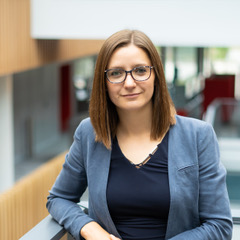 Gosia Trynka
Gosia Trynka
Head of Immune Genomics Group, Wellcome Sanger Institute
Science Director, Open Targets
Wellcome Genome Campus
UK
Dr. Trynka strongly believes that interdisciplinary approaches are essential to achieve meaningful insights into biological processes. The combination of molecular techniques, genomic assays, and computational methods that we develop and apply to study the immune system is a reflection of their own career path through several disciplines within biology and genetics.
With a background in molecular biology, they became interested in medical and population genetic approaches to study genetic determinants for immune related diseases. They joined Prof. Cisca Wijmenga’s group where they were a co-lead analyst for the genome-wide association study (GWAS) and an Immunochip study for coeliac disease (an immune disease of the small intestine resulting from intolerance to gluten). These studies resulted in identification of tens of disease risk loci and pointed to strong shared genetic background between celiac disease and a range of other common immune conditions, including type-1 diabetes, rheumatoid arthritis, and inflammatory bowel disease.
Despite their great success in mapping disease risk variants, they were disappointed by the limited insights that they gained in understanding biology of complex immune diseases. They therefore carried out their postdoctoral research at Brigham and Women’s Hospital, Harvard Medical School, and Broad Institute where they joined Dr. Soumya Raychaudhuri’s and Dr. Robert Plenge’s groups. They invested their time in developing statistical methods that allow translation of GWAS associations into biological functions. By integrating disease-associated variants with functional genomics data, these approaches pointed to specific cell types being relevant in the pathogenesis of numerous complex traits, including immune diseases. Their group at the Sanger Institute continuous with experimental and computational efforts to further map and translate immune disease genetic variants to function.




